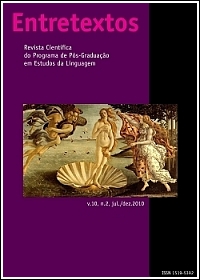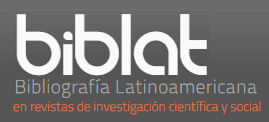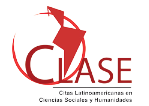English as a lingua franca: subject programs of a teacher education course
DOI:
https://doi.org/10.5433/1519-5392.2010v10n2p64Keywords:
English-Lingua franca, Teacher education, CurriculumAbstract
The spread of English in the world has positioned this language as a global lingua franca. This status brings some questions and changes to the teaching of English which has been conceived as a foreign language with an emphasis on the native speaker model. Research studies that deal with this issue alert to the teaching implications of decentering the native speaker model and therefore, widening the bilingual teacher knowledge base. Thus, this research aims to verify whether a teacher Education course of a well-known university is following and incorporating this discussion in its curriculum. Therefore, we analyzed the subject programs of this course through documental analysis based on Content Analysis by Bardin (1977). The results show that isolated attempts have tried to insert this issue. However, it seems that there is no general positioning of the course related to this perspective.References
BARDIN, Laurence. Análise de conteúdo. Lisboa: Persona, 1977.
BERTO, Patricia. English as a lingua franca vs. brazilian EFL classrooms. In: MÜLLER, V.; MAGALHÃES, V. (Org.). Proceedings of the 14th annual convention: teaching today, touching tomorrow. Porto Alegre: PUCRS, 2009a. p. 82-92.
BERTO, Patricia. English as a lingua franca: a study of Brazilian english teachers‟ attitudes and opinions towards it. 2009b. Dissertação (Mestrado em Estudos Ingleses e Americanos) - Universidade de Lisboa, Portugal.
DEWEY, Martin. English as a lingua franca and globalization; an interconnected perspective. International Journal of Applied Linguistics, Oslo, v. 17, n. 3, p. 332-354, 2007.
El KADRI, Michele Salles. Atitudes sobre o estatuto do inglês como língua franca em um curso de formação inicial de professores. 2010. Dissertação (Mestrado em Estudos da Linguagem) - UEL, Londrina.
FOGAÇA, Francisco Carlos; GIMENEZ, Telma Nunes. O ensino de línguas estrangeiras e a sociedade. Revista Brasileira de Lingüística Aplicada. v. 7, n.1, p. 161-182, 2007.
GIMENEZ, Telma. Línguas Estrangeiras Modernas: questões para debate. In: PARANA. Secretaria da Educação.do Estado. Diretrizes Curriculares da Educação Fundamental da Rede de EducaçãoBásica do Estado do Paraná. Curitiba, 2005. p. 168-173.
GIMENEZ, Telma. Políticas governamentais, mídia e ensino de línguas estrangeiras. In: GIMENEZ, K. (Org.). Contribuições na área de línguas estrangeiras. Londrina: Moriá, 2005. p. 91-104.
GIMENEZ, Telma; FURTOSO, Viviane. Racionalidade técnica e a formação de professores de línguas estrangeiras em um curso de letras. Revista X, Curitiba, v. 2, p. 1-15, 2008.
JENKINS, Jennifer. Implementing as international approach to english pronunciation: the role of teacher attitudes and identity. Tesol Quarterly, Columbia, v. 39, n. 3, p. 535-543, 2005.
LEFFA, Vilson Jose. Teaching English as a multinational language. The Linguistic Association Of Korea Journal, Seul, Coréia, v. 10, n. 1, p. 29-53, 2002.
LUKE, Menga; ANDRÉ, Marli. Pesquisa em educação: abordagens qualitativas. São Paulo: EPU, 1986.
ORTENZI, Denise Ismênia Bossa Grassano et al. Roteiros pedagógicos para prática de ensino de inglês. Londrina: EDUEL, 2008.
RAJAGOPALAN, Kanavilil. The english language in Brazil: a boon or a bane? In: BRAINE, G. (Ed.). Teaching english to the world: history, curriculum and practice. Mahwah: Lawrence Erlbaum, 2005. p. 1-10.
RAJAGOPALAN, Kanavilil. Maria Nilva Pereira pergunta/Kanavillil Rajagopalan responde: o inglês como língua internacional na prática docente. In: LIMA, D. C. (Org.). Ensino e aprendizagem de língua inglesa: conversas com especialistas. São Paulo: Parábola, 2009. p. 39-46.
RAJAGOPALAN, Kanavilil. The outer circle as a role model for the expanding circle. English Today, Cambridge, v. 25, n. 4, 2010a.
RAJAGOPALAN, Kanavilil. The English language, globalization and Latin America: possible lessons from the „Outer Circle‟. In: SAXENA, M.; OMONIYI, T. Contending with globalization in world englishes. Clevedon: Multilingual Matters, 2010b.
SEIDLHOFER, Barbara. Closing a conceptual gap: the case for a description of english as a lingua franca. International Journal of Applied Linguistics, Oslo, v. 11, n. 2, p. 133-158, 2001.
SEIDLHOFER, Barbara. Research perspectives on teaching english as a lingua franca. Annual Review of Applied Linguistics, Cambridge, v. 24, p. 209-239, 2004.
SILVA, Tomaz. Tadeu. Documentos de identidade: uma introdução às teorias de currículo. 2. ed. Belo Horizonte: Autêntica, 2002.
SIQUEIRA, Domingos Savio Pimentel. Inglês como língua internacional: por uma pedagogia intercultural crítica. 2008. Tese (Doutorado em Letras e Lingüística) - Universidade Federal da Bahia, Salvador.
Downloads
How to Cite
Issue
Section
License
Entretextos adota a Licença Creative Commons Attribution 4.0 International, portanto, os direitos autorais relativos aos artigos publicados são do(s) autor (es), que cedem à Entretextos o direito de exclusividade de primeira publicação.
Sob essa licença é possível: Compartilhar - copiar e redistribuir o material em qualquer suporte ou formato. Adaptar - remixar, transformar, e criar a partir do material, atribuindo o devido crédito e prover um link para a licença e indicar se mudanças foram feitas.




















